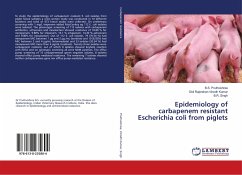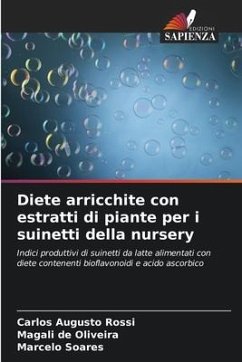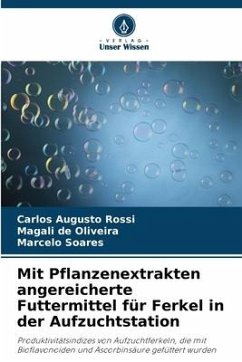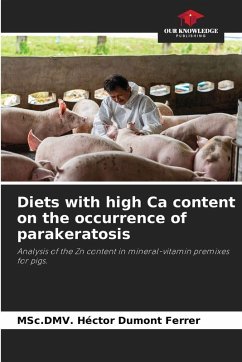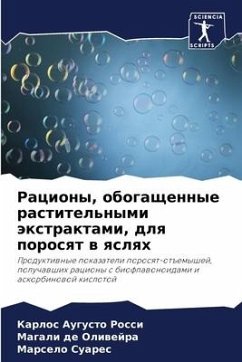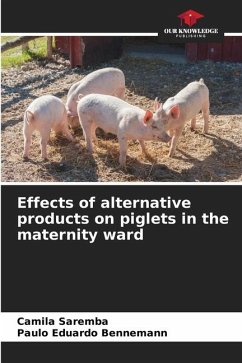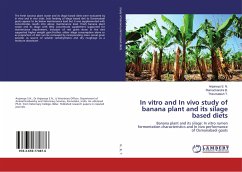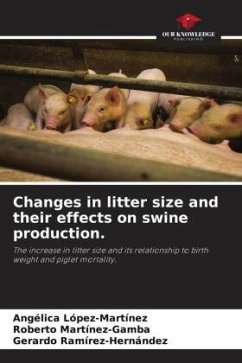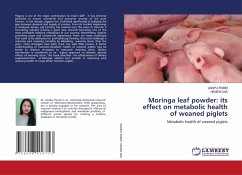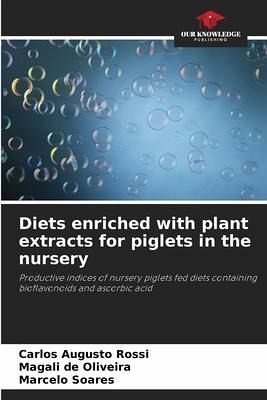
Diets enriched with plant extracts for piglets in the nursery
Productive indices of nursery piglets fed diets containing bioflavonoids and ascorbic acid
Versandkostenfrei!
Versandfertig in 6-10 Tagen
47,99 €
inkl. MwSt.

PAYBACK Punkte
24 °P sammeln!
The aim of this study was to assess the performance, microbiological profile, enzymatic profile and detection of pathogenic strains by multiplex PCR of 40 piglets (females and males) in the nursery phase. The experimental design was entirely randomised, with four treatments, five replications and sex as a blocking factor. The treatments were distributed as follows: T1 (control); T2 (Plant Extract (VE) (500ppm)); T3 (Amoxicillin (A) (20mg kg-1) and T4 (A (20mg kg-1) + VE (500ppm)). There was no influence (P>0.01) between the treatments on initial and final weight and daily weight gain, but the ...
The aim of this study was to assess the performance, microbiological profile, enzymatic profile and detection of pathogenic strains by multiplex PCR of 40 piglets (females and males) in the nursery phase. The experimental design was entirely randomised, with four treatments, five replications and sex as a blocking factor. The treatments were distributed as follows: T1 (control); T2 (Plant Extract (VE) (500ppm)); T3 (Amoxicillin (A) (20mg kg-1) and T4 (A (20mg kg-1) + VE (500ppm)). There was no influence (P>0.01) between the treatments on initial and final weight and daily weight gain, but the males in the control group had an average daily feed consumption 1.8 per cent higher (P<0.01) than the other treatments. The total bacterial colony count of the control group was 35.9 per cent, 70.9 per cent and 63.8 per cent higher (P<0.01) than the treatments with A, EV+A and EV, respectively. The animals that received EV or its interaction with amoxicillin showed genes for fimbriae and toxins. The supplementation of EV to the diets of weaned piglets did not determine the absence of genes for the presence of fimbriae and toxins.



